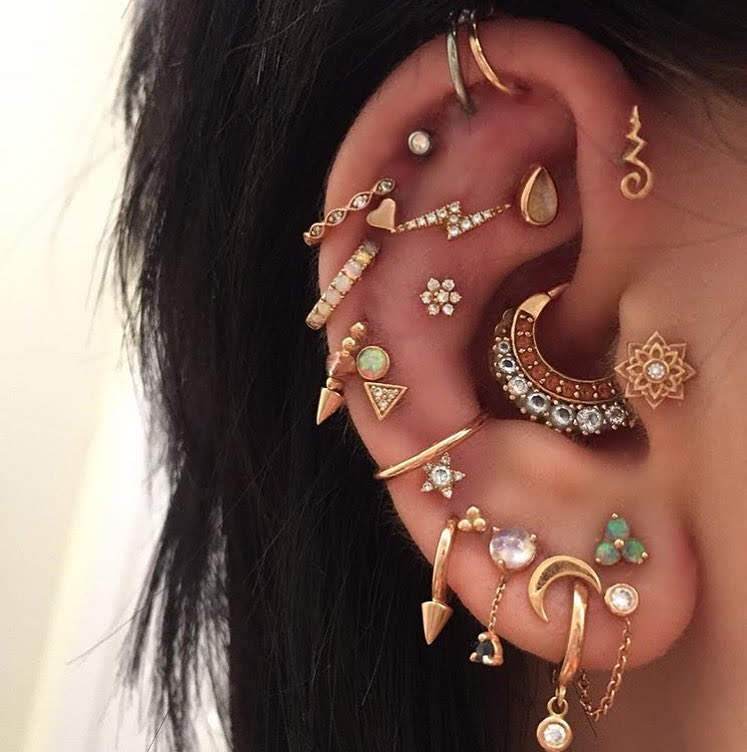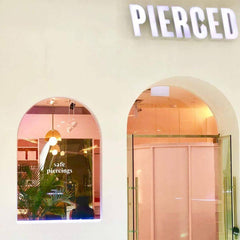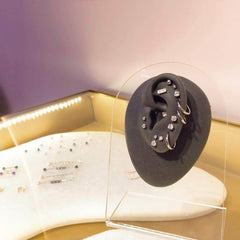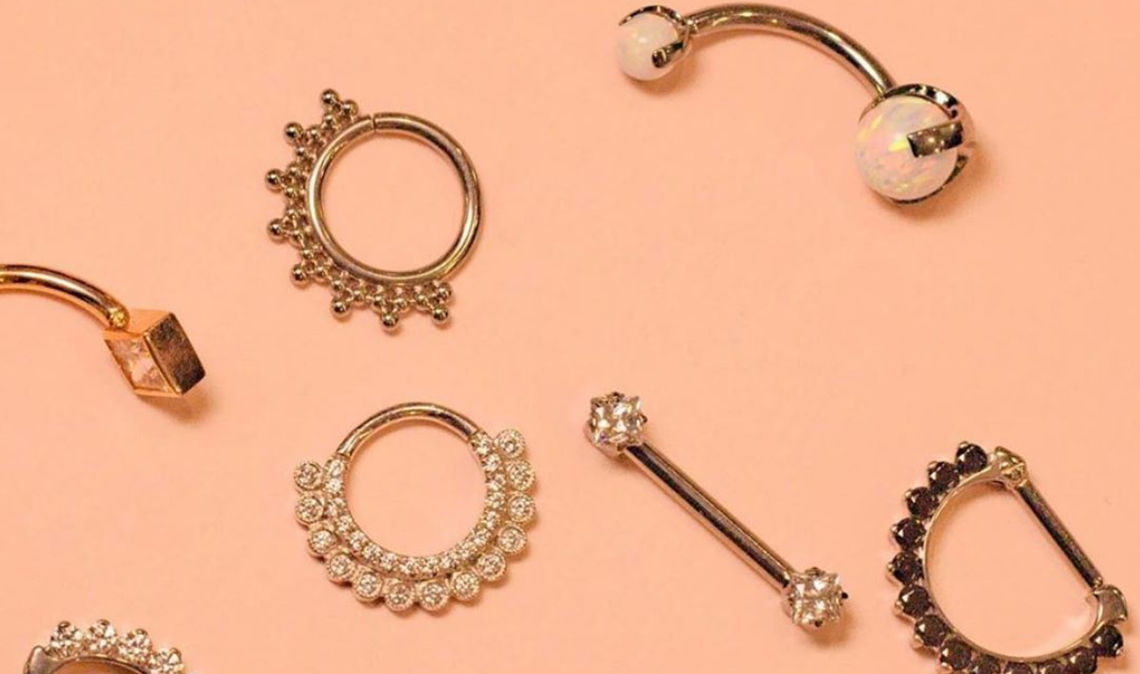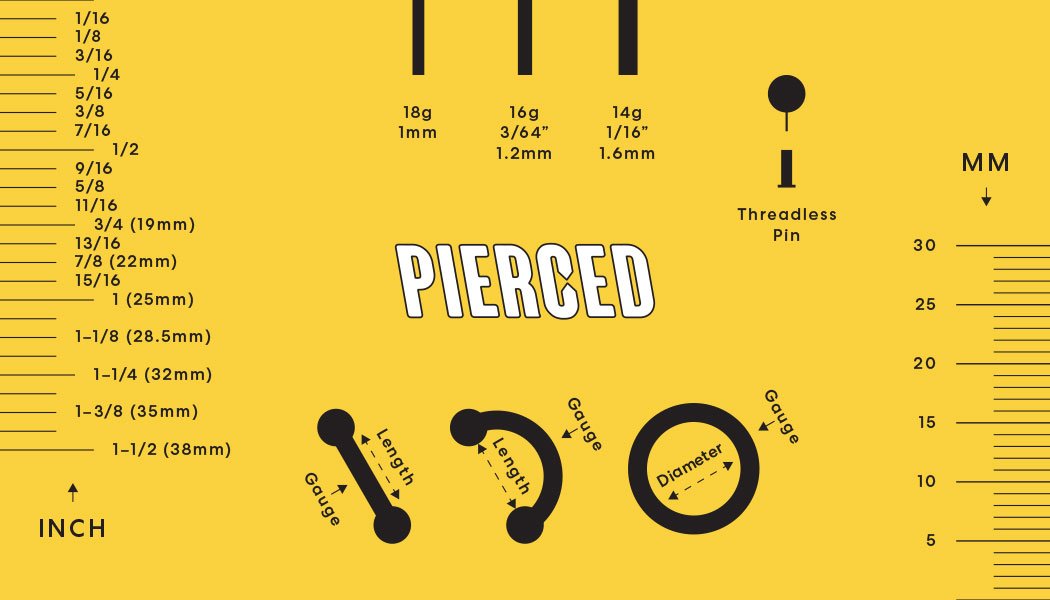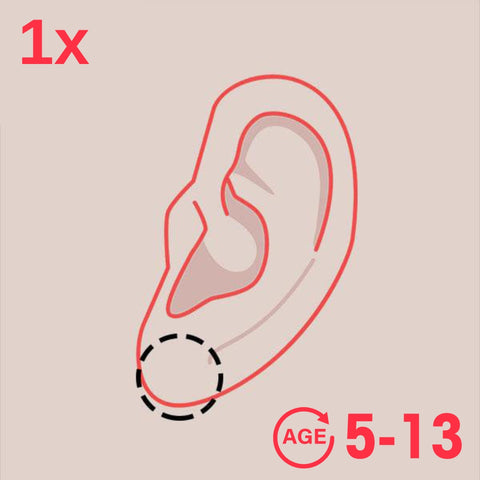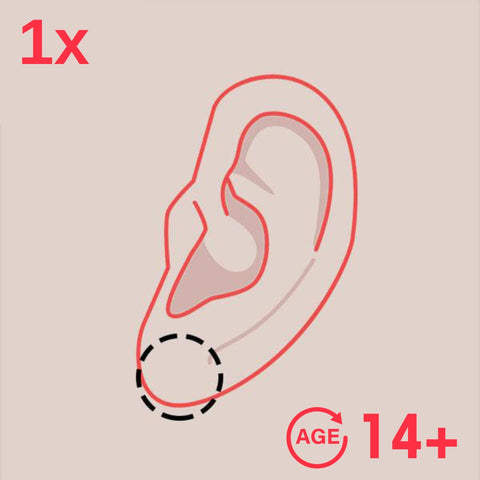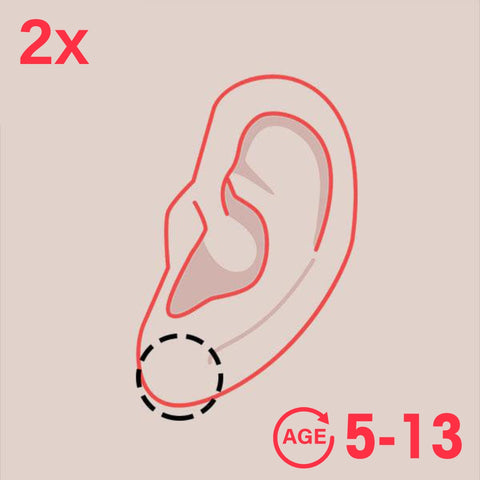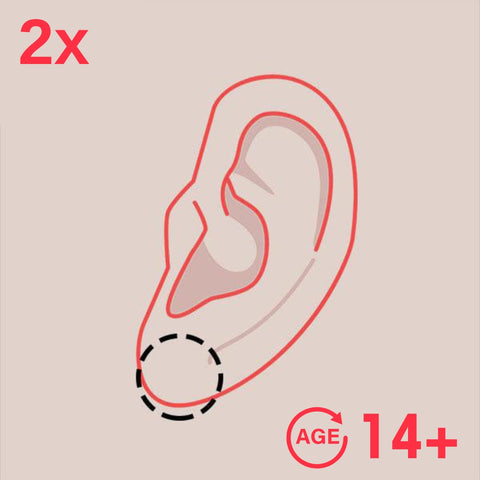When it comes to body piercing, choosing the right jewelry is crucial. Not only does it enhance your personal style, but it also plays a vital role in ensuring proper healing, minimizing the risk of complications, and maintaining optimal comfort. Among the multitude of materials available, gold and titanium stand out as the go-to choices for body piercing enthusiasts. In this comprehensive guide, we will delve into the reasons why these materials reign supreme in the realm of body piercing jewelry.
Why Is the Choice of Body Piercing Jewelry Material Important?
The choice of material for body piercing jewelry holds significant importance due to various reasons:
- Safety: Materials must be biocompatible to avoid allergic reactions, infections, and other complications.
- Durability: Jewelry should withstand everyday wear and tear without compromising its structural integrity.
- Comfort: Smooth surfaces and appropriate weight contribute to overall comfort during the healing process and extended wear.
- Style: Jewelry selection is an expression of personal style and aesthetic preferences.
What is Hypoallergenic Body Piercing Jewelry?
People with various skin allergies often have a hard time choosing types of body jewelry for themselves. Luckily, most of the metal types that are used in jewelry have an anti-allergen component that prevents any issues. Some of these can be more expensive than others, but are worth it if you know exactly what it is that you’re allergic to.
Common metal allergies include:
- Nickel {often found in stainless steel and silver applications}
- Copper {gold and other yellow metals}
- Cobalt
- Chromium
There are different codes for the types of jewelry that are hypoallergenic, which means they should be entirely free of any allergy-causing alloys. No matter what the artist or salesperson tells you, these codes will serve as a numerical reminder of the actual content of the metal.
The History of Gold in Body Jewelry
Gold has long been the aesthetic standard for body jewelry across the world, as it is rare and exceptionally beautiful. For piercings, gold is probably the more expensive material to get, especially if it is pure gold, also known as 24 karat. Any other karat weight of gold will have other metals in it.
Gold possesses several desirable properties that make it an excellent choice for body piercing jewelry:
a) Biocompatibility: Gold is known for its hypoallergenic properties, making it suitable for individuals with sensitive skin. It rarely triggers adverse reactions, minimizing the risk of complications.
b) Durability: Gold, particularly 14k and 18k gold, combines strength and malleability, ensuring resistance to deformation while allowing for intricate designs. Its resistance to corrosion and tarnish guarantees long-lasting beauty.
c) Variety: Gold offers a wide range of colors, including yellow, white, and rose, allowing for diverse styling options. It can be combined with gemstones or other materials to create unique and eye-catching designs.
d) Prestige: The luxurious appeal of gold jewelry adds a touch of sophistication and elegance to any piercing. It exudes a timeless quality that is favoured by many body piercing enthusiasts.

Golden Facts
While pure gold piercings are relatively uncommon now, they are a very old and traditional form of piercing jewelry that will stand out no matter where you go. Many metals can claim to replicate gold, but none will have the same level of purity and prestige found with this pure element.
Many times, piercing gold will not be entirely pure, and can contain possibly allergenic metal compounds like copper. These metals are also used to make gold stronger, since it’s naturally softer than other compounds. Be aware of this if you’re choosing gold jewelry.
Silver and Sterling
Silver has always been second best to gold, but the metal itself is much stronger and in some cases much more beautiful than the average gold piercing. As well as this, it’s also cheaper, so it may be a better alternative for you.
Sterling silver is not pure silver as is commonly believed, but instead .975 percent silver. Other alloys are used in order to make up the remaining percentage, which can contain allergenic compounds. Be aware of this if you’re thinking about getting sterling silver jewelry.
If you want pure silver, it will be stamped with a .999 mark that indicates its purity. If you don’t see this or it isn’t indicated in the product description, you shouldn’t trust it. There are far too few regulations and alloy metals that make purchasing anything not clearly marked a total gamble.

All About Alloys
Obviously, the main issues with alloyed metals are that they typically contain allergenic materials that might cause more problems than the pure metal itself. Most people have copper allergies that cause their skin to turn green, itch, or be stained. These can be amplified by the wound present in a new piercing, where allergenic compounds can enter the bloodstream and cause a much more violent reaction.
Despite this, having other metals present means that some types of jewelry will be cheaper for you if you don’t have any metal allergies, so take note of this while shopping. If you have any questions about the content of certain materials within a particular piece, you can always check for it online or through a manufacturer’s website to see the details.
Is Titanium or Stainless Steel Better for Piercings?
Titanium is often seen as the absolute best material for piercing, since it is hypoallergenic, incredibly shiny, and basically never mixed with other metals. Regardless, it does tend to be more expensive than stainless steel, since it’s a rarer metal to procure.
Both metals have their own unique properties that make them beneficial for different types of piercings. Their hypoallergenic construction also makes them useful for those that are more sensitive to certain metal types.
Why is titanium better for piercings?
If you’re looking to invest in a long term piercing that you won’t want to change next week, titanium is your best bet, as it will retain its lustre and antimicrobial properties for years to come if taken care of properly.
Titanium has gained popularity in the body piercing community due to its exceptional properties and benefits:
a) Biocompatibility: Titanium is widely recognized as one of the safest materials for body piercing jewelry. It is hypoallergenic, making it an ideal option for those prone to metal allergies or sensitivities.
b) Lightweight and Comfortable: Titanium is extremely lightweight, which reduces the strain on fresh piercings during the healing process. Its low density ensures comfort, even for extended wear.
c) Strength and Durability: Despite its lightweight nature, titanium is remarkably strong and durable. It resists scratching, denting, and corrosion, making it suitable for various body piercing types.
d) Versatility: Titanium offers a vast array of vibrant colours through anodization, a process that enhances the metal's natural oxide layer. This opens up endless possibilities for colourful and unique jewelry designs.

What is the best metal for piercings?
For sensitive areas that are prone to the gathering and accumulation of bacteria, like the belly button, it is imperative that you use only the most hypoallergenic metals that you can afford. This will prevent any bacteria from growing in the area.
Obviously, the best metal choice is entirely personal preference with a few key factors in place for those that are on the fence one way or another. Be sure to understand exactly what it is that you’re looking for in a piercing, as well as how the material speaks to the design you want. Some metals will stand out more than others, as well as have a different look for whatever kind of aesthetic you’re trying to convey, whether that’s more traditional or contemporary.
Your investment is up to you, but take note of the purity of the metal if you’re looking for gold or silver and other precious metal types. Once you do this, it will be that much easier to find the perfect metal or material for the piercing type you’re looking for. Finding the right piercing shop is also very important!
Taking Care of Your Piercing
As with any piercing, no matter how hypoallergenic or microbe-resistant it may be, you should always take care of it properly. This includes using warm water and ideally an antimicrobial soap.
To sterilize your jewelry properly, you have a few options depending on the items you have at hand and how much time is available to you for the occasion. Take a boiling pot of water and place the jewelry in it for at least five minutes. This will help to adequately disinfect it if any serious bacteria that may be lingering on the surface.
As well as this, you can also use a bleach-free compound to soak the jewelry in for at least a minute. It’s important to remove bleach from the equation, as it can cause an allergic reaction on the skin for most people that is difficult to treat, as well as light burns that will be painful.
No matter which material you choose for your piercing, you can be assured that doing a little research beforehand will be your best bet against infection.
Conclusion
Choosing the right body piercing jewelry is crucial for safe, comfortable, and stylish adornments. Gold and titanium emerge as the top choices, excelling in terms of biocompatibility, durability, comfort, and versatility. By opting for gold or titanium jewelry, you can confidently adorn your piercings with beautiful and safe accessories that reflect your unique style.
Remember, when it comes to body piercing jewelry, prioritize quality, safety, and professional advice. Embrace the beauty and excellence of gold and titanium, and elevate your piercing experience to new heights.
Piercing Studios Near You
Mississauga
Square One Shopping Centre
100 City Centre Drive, Mississauga,
ON L5B 2C9
Phone
+1 (905) 232 -7226
Need an Experienced Piercer in Mississauga?
Working with an experienced piercer can make all the difference when it comes to your piercing experience. If you’re in the Mississauga, Ontario area and have any questions about ear piercing, body piercing or jewelry, give us a call or stop by our piercings studio today. We’d love to help walk you through what to expect and help you choose the right option.
